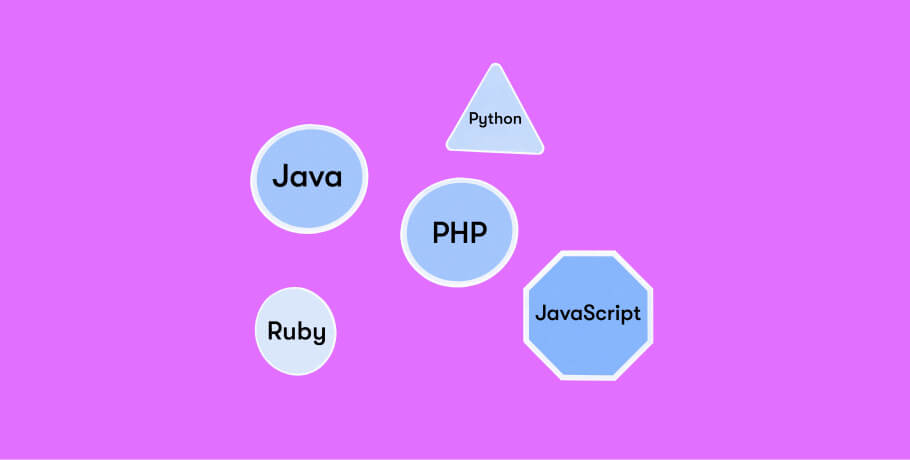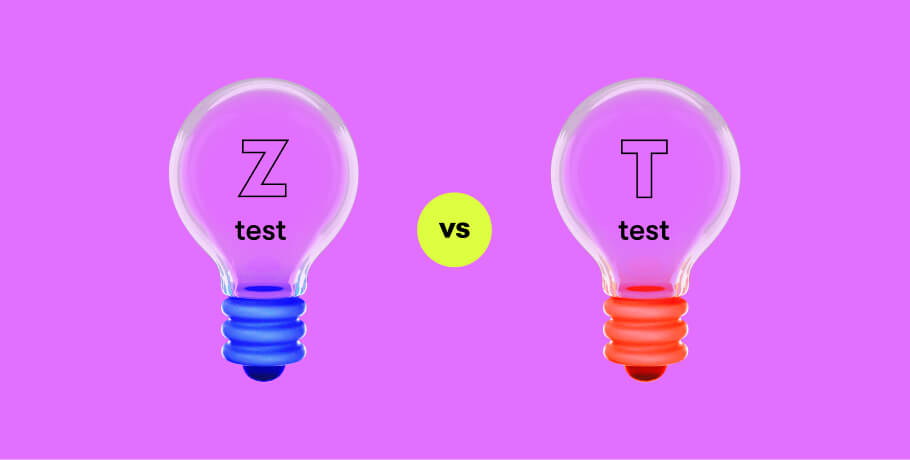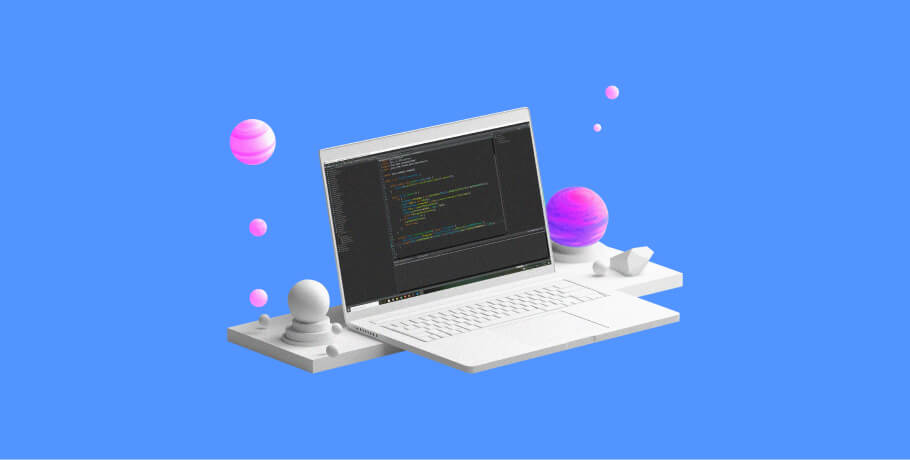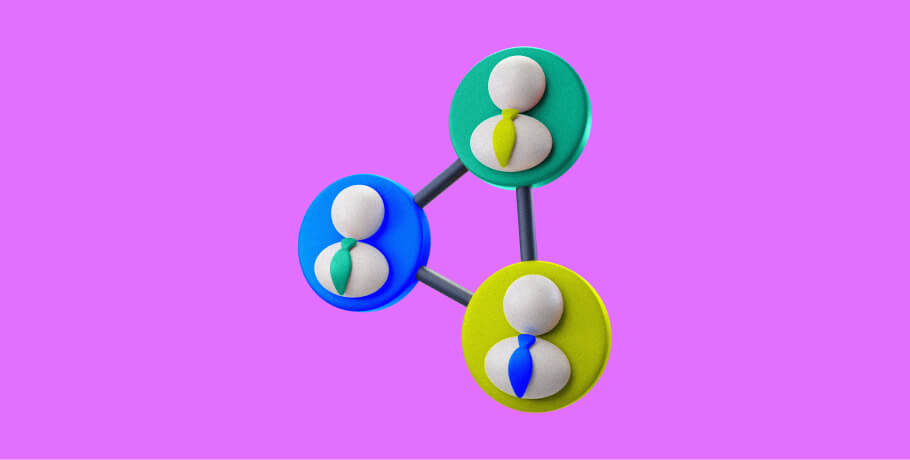Python vs PHP for web development is an age-old debate. For one, this is because both languages have been associated as benchmarks in the web-development world, though PHP holds a certain dominance: almost 77% of server-side websites use PHP, and 1.4% use Python.
But other stats present a more well-rounded picture, as both programming languages have strong communities that advocate for using their preferred language. To put this into perspective, Stack Overflow has 44.1% of users siding with Python, and 25.8% siding with PHP. GitHub has the same results, where developers preferred Python by a margin.
When combined, these factors can make it difficult to decide which language is best for your project. Questions like, is PHP faster than Python?, what’s really the difference between PHP and Python?, and how do I choose between PHP vs Python for web? are all bound to cloud your mind. And your concerns are valid — after all, building web applications is not a task to be taken lightly.
Trust us; we’ve been on both sides of this debate, sometimes siding with the coveted PHP 7, sometimes singing the praises of Python, and other days, even preferring Java or MySQL over the rest.
All we’re trying to say is that creating a web app using code is not easy — there are thousands of considerations about runtime, scalability, frameworks, security features, community support, etc. But if you want to create a website from scratch, you cannot go wrong with these two.
So, without further ado, let’s dive in and explore the differences between Python and PHP. We promise to give you an unbiased side-by-side comparison of these popular web programming languages so that you can decide what’s the most effective choice for you.
PHP vs Python: the basics
At the surface level, PHP is similar to Python for a couple of reasons. The biggest one is that they’re both server-side scripting languages that have a simple syntax, and are popular choices amongst software developers. They’re both open source and free, too. However, where there are similarities, there are differences as well. Before we move forward with covering the specifics of the Python vs PHP debate, let’s understand these languages more closely.
Python
Conceived in the 1980s by Guido von Rossum and first released in 1991, Python is freely available on multiple operating systems such as Linux and Windows. This language is extensible via modules, as opposed to having functionality in its core. Over the years, Python has become more dynamic — it now features extensive library support, has better options for debugging, and provides better compatibility.
PHP
Developed only a few years behind Python, PHP was created in 1994 by Rasmus Ledford. Today, PHP (also known as hypertext processor) is most commonly used to build web applications, and that’s one task that it does best. Starting from just PHP, and then extending to add versions such as PHP 3, 4, 5, 6, etc., PHP has come a long way. As of this writing, PHP 8 is their most current version — with the common debate being “PHP 8 vs Python,” as opposed to just “Python versus PHP.”
Python vs PHP: key differences
Although they’re both programming languages, PHP and Python have key differences in functionalities. For one, PHP is specifically created for server side scripting — it's specifically created to build web pages, which would be a good indicator of why 77% of server-side websites on the internet are developed using PHP.
Python, on the other hand, is an object oriented, general purpose programming language — that’s to say, although it can create web pages with ease, it can also be used to develop technology, such as AI, data science, and machine learning.
Python is also great for software development, seeing as how it was integral in creating Reddit, Dropbox, Spotify, Pinterest, and Quora, amongst many others. Conversely, Facebook and Yahoo prefer PHP over Python.
So, that’s the primary difference between both languages. Aside from this major one, PHP has a steeper learning curve. This is mainly because Python reads more like the English language, whereas PHP does not — it’s more rigid, but that also means that the outcomes it produces are guaranteed.
You can play around with Python to create something new, but that can backfire, too, because there’s no saying where to start and stop. However, for more creativity-inducing projects (as so many projects are these days), creative freedom is what’s on a developer’s mind, and that explains why most web developers choose Python over PHP, and why Python has been growing more popular in recent years.
On the flip side, where PHP shines particularly brighter than Python is data integration — with access to over 25 databases, it can be argued that PHP has better data integration abilities than any open source programming language.
Now, more in favor of the “Python instead of PHP” side of the debate, here’s where Python shines: it’s more dynamic than PHP. How, you ask? Python is more portable (you can shift operating systems; for example, you can shift from Windows to Linux), it’s extensible, and it’s got considerable library support. You can also use it on frameworks like Flask, CMS like Django, and add databases like Oracle.
Let’s dive in further to explore what sets these languages apart.
PHP vs Python security
When it comes to web development, we’d argue that security is one of the most important components of building a website, especially considering that, since the Covid-19 pandemic, security breaches have increased by over 31%. Let’s take a look at where these top languages stand as far as security is concerned.
PHP
Today, PHP is far more developed in terms of security than it was before, and this is mainly because the developers have added more frameworks and tools that allow basic cybersecurity threats such as data tampering, SQL injections, cross-site forgery through requests, etc., to be avoided.
Although most experts would agree that PHP doesn’t compare to Python in security, it is, however, secure enough as just about any other open source language. To get the total benefit of PHP’s security features, experts recommend that you update the language regularly, and upload data and files securely.
Python
According to many experts, Python is one of the most secure open source programming languages out there. However, if you’d like to see how Python web app security compares, you can use Bandit to check if your code is secure.
And the same goes for Python development as it does for PHP: if you wish to be up-to-date with security practices, our best advice would be to update the language regularly. The reason why many experts name Python the most secure language is because it can prepare for cybersecurity attacks through scanning, malware analysis, and security testing.
Python vs PHP performance
PHP vs Python performance is one of the key areas to look at when it comes to comparing both languages, mainly because you suffer an actual chance of losing users if they have to wait for more than a mere few seconds on your web page.
Although there are many studies out there that tell you how a small difference of a second can cause X amount of website visitors to bounce from your page, there’s one common point they’re all proving: no one likes excessive load times on websites (especially in today’s immediate gratification culture, where you have apps like Instagram competing for your attention).
We’ll go on to discuss more about how these two compare in terms of speed in the next section. Here, we’re looking at what options and tools they both offer to improve performance.
Python
Python, as a language, provides several ways for users to improve performance (and, ultimately, speed). For one, you can use its in-built functions (Python has an extensive library with tried and tested codes that you can borrow — codes that are optimized for functioning efficiently and smoothly). Alternatively, you can also develop your own code to ensure that it’s up to speed.
Other tips suggested by experts are to use unions, sets, list comprehensions, x-range functions instead of regular functions, and the word “in.” Additionally, you can also try to use multiple assignments, can leave the exit early, try your hand at iter tools, be lazy with importing modules, use “while 1” infinitely on a loop, etc. The basic idea is to try new things to ensure that you optimize your code so that it is up to speed.
PHP
Over the years, PHP has gone through a major improvement in terms of the speed it offers. Those web pages that load within milliseconds once you click on them? You have PHP to thank for that (since most web pages online are now made using PHP). However, if you still feel like your PHP-made website is lacking, then here are a few options this language offers to improve your load times.
To begin with, use the latest version of PHP (version 7 and onward, as they have been optimized for load times). Next, you can try options like using a debugger and caches. You can also try session clustering, try different web servers to see which one suits you best, deploy code tracing, clean file systems, conduct data analysis, and understand what causes database delays.
Python vs PHP speed
PHP speed vs Python speed — which one compares best, you ask? The short answer is PHP. The long answer is the previous versions of PHP, such as the ones before version #7, were severely lacking in speed — the load times were like the turtle in the race with the hare (extremely slow, even if the turtle eventually wins!).
However, there have been major improvements since then, and PHP now ranks as the fastest open source programming language. Read on to explore more about how these two programming languages compare in speed.
Python
With the way many experts build up PHP’s speed, you’d think that Python would have an excessively slow load time. However, that’s far from the case. Python’s load times are just fine — they rank almost just as well as any other programming language out there. In fact, before PHP version #7 was launched in the market, Python was the clear winner in the “Python vs PHP web performance” debate.
According to Benchmarks Game, Python’s speed time is 34.53 seconds — which, although this is not great, it’s not too bad either, considering some versions of Matz’s Ruby, Perl, and Lua are below Python on that same list. On the better end of the spectrum, Python has extremely fast prototyping speed. You can also employ Python interpreters and compilers like Numba, who make the entire process even more efficient.
PHP
PHP is usually the preferred option of code for websites with a lot of customers, or those that conduct eCommerce operations on their site. The reason? PHP’s speed is ultra-fast. Some experts say that the current version of PHP runs almost two times faster than the previous versions.
Others also say that PHP can help improve load times and site performance by 30% and can minimize time to the first byte (TTFB) by 50%. ByteNap guarantees that it will also take 15% less memory, while simultaneously improving processes by 20-30%.
PHP vs Python syntax
Although syntax complexity is not one parameter that most businesses look at when deciding on web development, it is still an important factor that needs to be considered. The reason for this is that many times marketing teams and business owners want the most lucrative site to promote their product and/or get inbound traffic.
However, there are limitations to every web page that’s created — for example, adding too much data to a website will make it load slower; the kind of programming language you use can affect bounce rates; and the kind of syntax you employ affects the final outlook (and readability) of your website.
Sometimes (read: most times), syntaxes are complex to master and optimize for efficiency, so knowing the difficulty level of a syntax and comparing it with the expertise of your team member is an important consideration — especially if you’re building your website from scratch with an in-house team.
Python
Python may be a high-level language, but that doesn’t mean it's difficult to understand or conquer; rather, the opposite can be said to be true. Python is extremely easy to master; in fact, some experts even labeled it as a “human-like language.” According to many sources, Python is easy enough that beginners should be able to grasp it without a steep learning curve.
Experts also agree that this code is much simpler to understand, and has better readability, especially when compared to another open source language like PHP. Python also has an extensive library, full of optimized code and syntax, and which users can borrow for their own personal use. And since Python is a general use programming language, it also means that Python developers can build AI or analyze data.
PHP
Since PHP is an HTML language, it's more rigid to understand — but that’s only when you compare it to Python. By itself, an average developer may learn the ins and outs of PHP in a short time. Aside from this key consideration, PHP also compares poorly with Python when it comes to the library. Although, by itself, PHP has a great library that’s filled with resources, it is nowhere near as extensive as Python’s.
PHP or Python for backend
Now that we’ve compared both these languages extensively, let’s take a look at all the nitty-gritty that happens on the backend. In this section, we’ll round out our comparison of these two languages.
When working with Python and a thing or two goes wrong — fret not, for you’ll have excellent community support. You can also get comprehensive documentation abilities with Python. The same goes for PHP, as it too has excellent documentation (although not as great as Python’s) and strong community support (just as great as Python’s).
The only key differences on the backend (aside from the aforementioned factors) are debugging and the frameworks both these languages use. Python uses Flask, Django, Pyramid, etc., whereas PHP uses Zend, Codeigniter, Laravel, etc. Python has its own debugger, whereas PHP has a XDebug package.
Python vs PHP development cost: which one is more profitable?
If you’re looking solely at development costs for a project, then according to industry standards a PHP web development project is going to cost less. This is mainly because when PHP became the norm, many developers learned the language soon after, which meant that there was a huge influx of supply to match the demand.
However, in recent years Python has risen to fame, and relatively few developers know the language — meaning that there’s a mismatch between supply and demand. Python’s success is also ultimately leading businesses to move past PHP, which means that there are more developers and fewer jobs, and why PHP projects will now cost less.
However, if you want to create a web-based website, then (aside from the cost perspective) PHP is still the way to go because it has niche specialization.
Python vs PHP for web development: what is the best choice?
The answer to this question largely depends on the kind of project you want to create. For example, if you want to create a basic web-based project, then the clear answer would be to go ahead with PHP. The reason for this is PHP has specialization in that area, it has catered to its customers well, it has a fast loading speed, and many existing companies already use it (in fact, the large majority of the websites on the internet are PHP-based).
However, if you want to do something a little different from the norm, such as introduce machine learning or artificial intelligence within your project, then our recommendation would be to use Python, as Python has more advanced capabilities in these areas. It not only is equipped to develop web pages, but it can also develop other parts of your project as well. It’s also got an extensive library, so if you’re in the mood to experiment, you can always try to learn something new from there.
Python | PHP | |
Basics | Developed in the 1980s by Guido von Rossum | Developed in 1994 by Rasmus Ledford |
Key differences | Object oriented, general purpose programming language | Created for server-side scripting |
Security | Python is one of the most secure open source programming languages | Has improved, can prevent basic cyberattacks |
Speed | According to Benchmarks Game, Python’s speed time is 34.53 seconds | Current version of PHP runs almost two times faster than previous versions |
Syntax complexity | Python is easy enough that beginners should be able to grasp at it without a steep learning curve | Since PHP is an HTML language, it's more rigid to understand |
Usage | Can be used for web development, along with machine learning, big data, AI, etc. | Specifically used for web development |
Documentation | Comprehensive documentation abilities | Has excellent documentation (although not as great as Python’s) |
Library support | Extensive library that supports almost every application | Has a good library, but Python ranks better |
Frameworks | Flask, Django, Pyramid, etc. | Zend, Codeigniter, Laravel, etc. |
Conclusion
Now that you’ve compared all aspects of these two programming languages, we hope that you have all the information you need to arrive at a concrete decision.
Just to summarize, you’ll get better results from PHP if you’re trying to build a website. But if you have plans to build an immersive experience that goes beyond just basic websites and extends to AI, ML, VR, etc., then you’ll find more benefits with Python.
FAQ
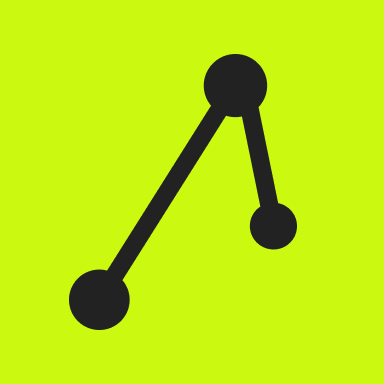
The EPAM Anywhere Editorial Team is an international collective of senior software engineers, managers and communications professionals who create, review and share their insights on technology, career, remote work, and the daily life here at Anywhere.
The EPAM Anywhere Editorial Team is an international collective of senior software engineers, managers and communications professionals who create, review and share their insights on technology, career, remote work, and the daily life here at Anywhere.
Explore our Editorial Policy to learn more about our standards for content creation.
read more

